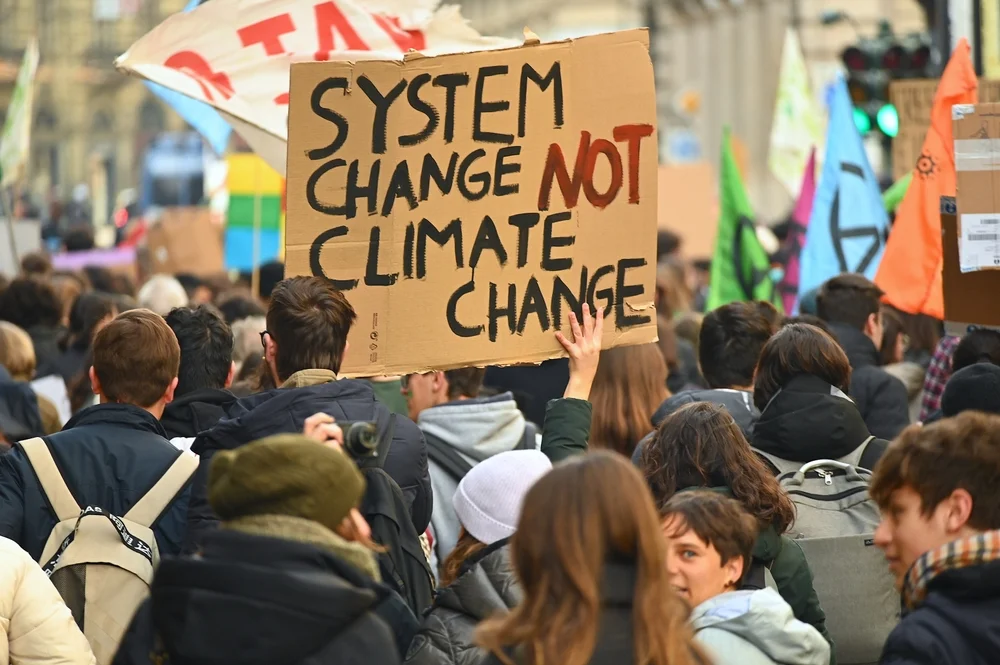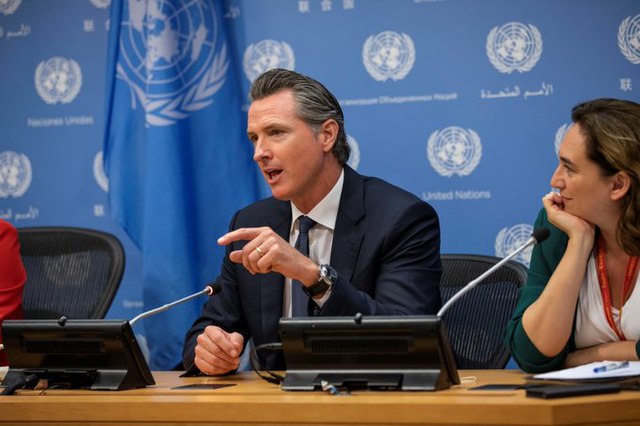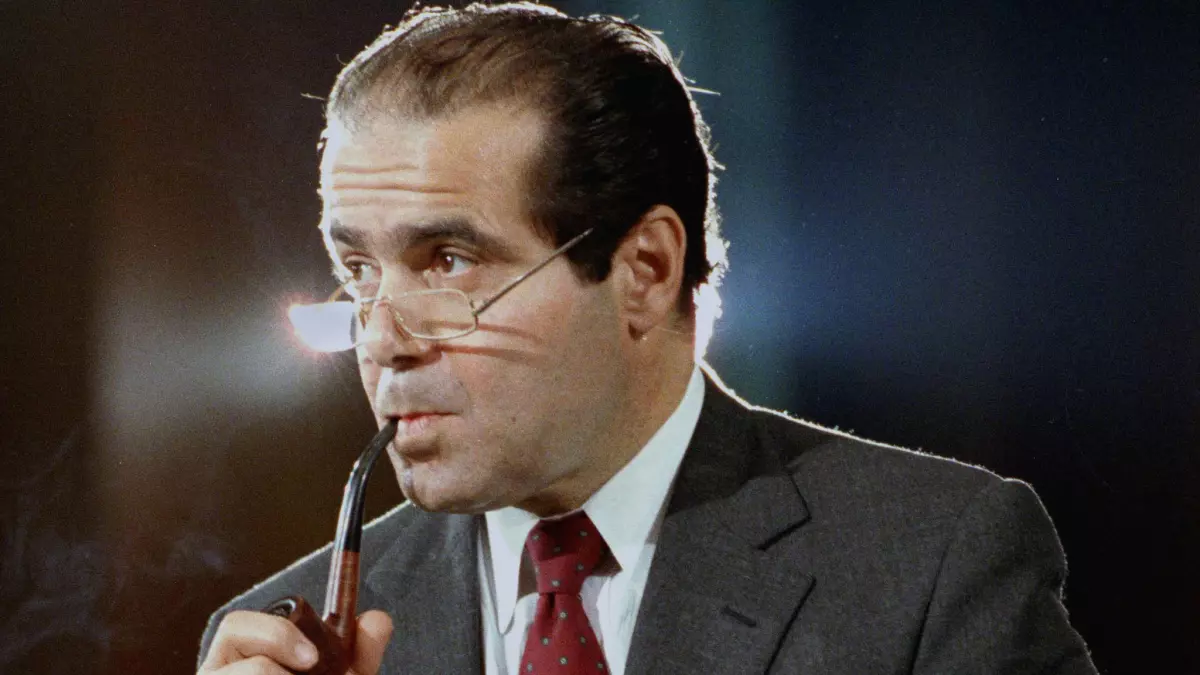
The Death Rattle of Apocalyptic Environmentalism
The era of apocalyptic environmentalism is fading, and its recycled doomsday warnings now sound more desperate than dire.
Bill Gates's recent declaration that he has changed his mind about climate change and no longer views it as a serious threat to the future of humanity is not just a major blow to the "climate crisis" camp, but likely signals the end of a 50-year cycle of Malthusian catastrophism that has hobbled liberalism for the last several decades.
Gates's statement, attacked by climate die-hards as a capitulation to "climate denial," was unsayable among acceptable elites even as recently as two years ago (when President Joe Biden was repeatedly asserting that "Climate change is an existential threat to humanity"), but reality has been breaking out in ways that can no longer be suppressed or ignored. Not that the climatistas won't try. The recent 30th annual UN Council of the Parties on climate change (COP30) was described once again as the "last chance" to "take action" to save the planet "before it is too late," and the "most important" summit since . . . last year's "most important" summit. It is hard to believe this farce can be kept up much longer, but for the committed, it's "most important" summits all the way down.
This kind of climate obsession won't disappear quickly or easily, but it ignores how radically the ground was shifting even before Bill Gates delivered his hammer blow. None of the American TV news networks, for example, sent reporters to this year's COP, and major print media are rapidly cutting back on climate coverage. A few reporters at the conference filed stories wondering whether this would be the last COP meeting.
The arrival of "abundance liberalism" (discussed here previously) gingerly repudiated climate catastrophism and embraced increased production of conventional hydrocarbon energy, but the young advocates of abundance liberalism, like Ezra Klein, probably don't realize that instead of being something new, they are actually a throwback to a nearly forgotten kind of liberalism. And therein lies a long story arc of the last two generations.
The liberalism of the 1960s under President John F. Kennedy was formally called "growth liberalism." While the main component was a justification for Keynesian-based "fine-tuning" of the economy, the overall goal was growth — lots of it. It's why Kennedy embraced tax cuts: "A rising tide lifts all boats."
But then, by the end of the 1960s, Thomas Malthus suddenly appeared to nudge Keynes aside. The "limits to growth" suddenly became the dominant idea: we were running out of natural resources (and soon), and we were killing ourselves with pollution. Typical of the time was a Newsweek magazine cover story featuring an empty horn of plenty with the ominous headline, "Running Out of Everything?" Which would end us first? Humanity was doomed unless economic growth was slowed or stopped. Neither claim was correct: we weren't running out of natural resources, and effective pollution control technologies were soon developed, albeit usually at high cost, excessive bureaucracy, and litigation. The age of "decoupling" had arrived; that is, economic growth proved perfectly compatible with — if not the precondition of — continued resource development and rapidly falling pollution.
At the time, the neo-Malthusian attitude was widely accepted beyond liberals, but it was especially costly to liberalism, though few realized this then. Since the Progressive era, American reform liberalism had been an optimistic creed, but by the end of the 1960s, liberals' self-confidence was shattered. Even the moon landing in July 1969 — the great quest of John F. Kennedy — was suddenly scorned by liberals (including the late president's brother, Sen. Ted Kennedy), and civil rights groups protested the launch of Apollo 11 at Cape Canaveral because they claimed diverted money that should have gone to "the cities." (The total cost of the decade-long moon landing project was less than three months' worth of federal spending for social programs in 1969.)
The limits to growth easily merge with the guilt stemming from the traumatic events of the 1960s that had affected liberalism. In fact, Malthusianism can be considered a force multiplier for liberal gloom. For some liberal minds, gloom is exhilarating, and the limits to growth offered a large-scale sequel to the Vietnam War. President Jimmy Carter embraced the limits to growth view in his inaugural address in 1977, noting that “We have learned that ‘more’ is not necessarily ‘better,’ that even our great Nation has its recognized limits.” California Governor Jerry Brown, whose father had been a great builder of large-scale public works in California as governor before him, also embraced the limits-to-growth mentality and stopped building anything.
In other words, within a decade, the main challenge of liberalism shifted from allocating abundance to rationing scarcity. Liberalism’s contradictory embrace of the old-time government activism and the “limits to growth” ideology was the central cause of the incoherence of the Carter administration’s domestic policy (especially on energy), and it has persisted in the liberal mind ever since.
It was always likely that reality would overtake the unserious rhetoric about the "energy transition" of the past 20 years, as the hidden higher costs of renewable energy became impossible to hide. All the grand rhetoric about reaching "Net-Zero" carbon emissions by 2050 is suddenly being abandoned in practice, if not yet in public discourse. A recent study of rising electricity rates in the U.S. by U.C. Berkeley's Lawrence Laboratory found that states with renewable energy mandates (chiefly for wind and solar) had the largest price increases, whereas states that allowed competitive market-driven energy choices had lower rates.
Suddenly, New York and New Jersey have decided to approve new natural gas pipelines that have been blocked for over a decade. “We need to govern in reality,” said New York's previously anti-pipeline governor Kathy Hochul. In California, Governor Gavin Newsom continues to trade in climate crisis cliches daily, but has quietly approved drilling permits for 1,200 new wells in California's remaining oil patch, and the Trump Administration's proposal to allow more offshore oil drilling off the California coast for the first time in 60 years has not yet resulted in street riots in Santa Barbara or Santa Monica.
The situation is similar elsewhere in the world. The International Energy Agency (IEA), which for years in its annual forecasts predicted the near-term peak in oil consumption and offered just-so "pathways" to reaching Net-Zero by 2050, has junked all of them in its most recent annual report. IEA now projects that use of conventional hydrocarbon energy (oil, gas, and coal) will continue to rise through 2050. At the same time, the "consensus" science of the Intergovernmental Panel on Climate Change (IPCC) has quietly backed away from its most catastrophic climate predictions.
The long-running climate campaign today resembles a Broadway show that has run long past its peak and is closing soon. The Sierra Club, the New York Times reported recently, has torn itself apart by deciding to emphasize "social justice" over protecting the environment, and has lost members and contributions while laying off a large number of staff. Bill McKibben has announced that his climate website and activist group, 350.org, are suspending operations amid declining financial support. Other leading environmental advocacy groups, which usually prosper when a Republican is in the White House, also report declining support.
The cliché of the year is "vibe shift," and we're witnessing a major one as the era of apocalyptic environmentalism comes to an end. There will be many death rattles, such as the newest alarm that climate change will deliver a new ice age rather than boiling oceans and endless heat waves. This was the leading climate scenario back in the 1970s, proving that everything old is new again. But it smacks of desperation. The ghost of Thomas Malthus can rest in peace.
Steven F. Hayward is the Edward Gaylord distinguished visiting professor at Pepperdine University’s School of Public Policy.
Politics

National Civitas Institute Poll: Americans are Anxious and Frustrated, Creating a Challenging Environment for Leaders
The poll reveals a deeply pessimistic American electorate, with a majority convinced the nation is on the wrong track.
.webp)
Liberal Democracy Reexamined: Leo Strauss on Alexis de Tocqueville
This article explores Leo Strauss’s thoughts on Alexis de Tocqueville in his 1954 “Natural Right” course transcript.
%20(1).avif)
Long Distance Migration as a Two-Step Sorting Process: The Resettlement of Californians in Texas
Here we press the question of whether the well-documented stream of migrants relocating from California to Texas has been sufficient to alter the political complexion of the destination state.
%20(3).avif)
Who's That Knocking? A Study of the Strategic Choices Facing Large-Scale Grassroots Canvassing Efforts
Although there is a consensus that personalized forms of campaign outreach are more likely to be effective at either mobilizing or even persuading voters, there remains uncertainty about how campaigns should implement get-out-the-vote (GOTV) programs, especially at a truly expansive scale.

There's a Perception Gap With the U.S. Economy
As we approach another election cycle, it’s worth asking: what’s real, what’s political theater, and what does it all mean if Democrats regain control of the House?

International Law Is Holding Democracies Back
The United States should use this moment to argue for a different approach to the rules of war.

Trump purged America’s Leftist toxins. Now hubris will be his downfall
From ending DEI madness and net zero to securing the border, he’ll leave the US stronger. But his excesses are inciting a Left-wing backlash

California’s wealth tax tests the limits of progressive politics
Until the country finds a way to convince the average American that extreme wealth does not come at their expense, both the oligarchs and the heavily Democratic professional classes risk experiencing serious tax raids unseen for decades.

When Duvall Played Stalin
It’s strange to compliment an actor for impersonating a tyrant, but it is an act of courage.

When Vanity Leads to Impropriety
A president should simply not be allowed to name anything after himself without checks from Congress or an independent commission.











